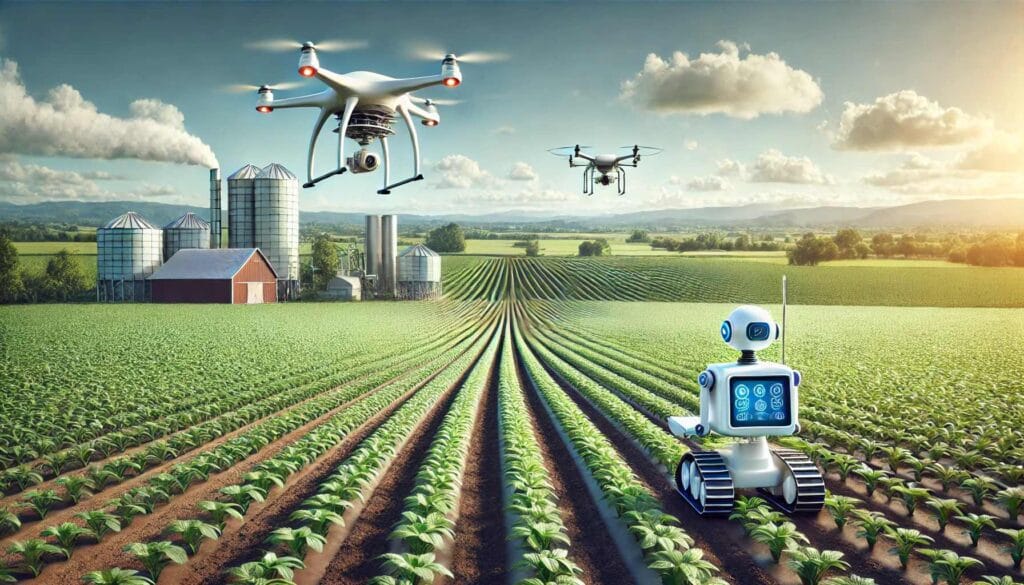The Impact of AI on Plant Cultivation

In recent years, the integration of Artificial Intelligence (AI) in agriculture has transformed how we approach plant cultivation. AI-driven technologies have brought a revolution in farming, enabling farmers to increase productivity, reduce waste, and manage crops more efficiently. AI’s influence in plant cultivation can be seen across various stages, from monitoring plant health to improving irrigation practices.
1. Precision Agriculture
One of the most significant benefits of AI in plant cultivation is its ability to implement precision agriculture. AI uses data collected from various sources such as sensors, satellites, and drones to analyze soil health, weather patterns, and crop growth. This data helps farmers optimize planting strategies, irrigation, and fertilization to maximize yield and reduce the use of resources.
For example, AI algorithms can predict the best time for planting based on weather forecasts and soil conditions. This reduces the likelihood of crop failure due to unfavorable conditions, ensuring better results year after year.
2. Plant Disease Detection
AI has proven to be incredibly effective in diagnosing plant diseases early. Using image recognition and machine learning, AI systems can analyze photographs of plants to identify signs of disease, pests, or nutrient deficiencies. These systems are faster and more accurate than human inspection, allowing farmers to take action quickly before a problem spreads.
Early detection of diseases leads to better-targeted treatments, reducing the need for harmful pesticides and promoting healthier crops. This is particularly important for sustainable agriculture, as it minimizes the environmental impact of farming.
3. Robotics in Farming
AI-powered robotics are revolutionizing the way plants are cultivated and harvested. Robots equipped with AI can plant seeds, monitor plant growth, and even harvest crops with minimal human intervention. These robots are designed to perform repetitive tasks with high precision, reducing the labor costs associated with traditional farming methods.
In addition, autonomous robots can work around the clock, ensuring that crops receive constant care and attention. This enhances efficiency and reduces the time it takes for plants to reach maturity.
4. AI in Irrigation Management
Water scarcity is a major challenge faced by farmers worldwide. AI helps address this issue through smart irrigation systems that optimize water usage. By analyzing weather patterns, soil moisture levels, and crop water needs, AI systems can determine the exact amount of water required for each plant.
This targeted irrigation reduces water waste, helps conserve water resources, and ensures that plants receive the right amount of hydration for optimal growth. Additionally, AI can predict weather patterns, allowing farmers to adjust irrigation schedules in advance to prevent overwatering or underwatering.
5. Sustainability and Environmental Impact
AI is playing a crucial role in making plant cultivation more sustainable. By using data to optimize resource usage and reduce waste, AI helps farmers adopt eco-friendly practices. For instance, AI can reduce the use of chemical fertilizers and pesticides by providing precise recommendations for their application based on real-time data.
Moreover, AI can help reduce the carbon footprint of farming by optimizing the use of machinery and energy. AI systems can guide farmers on the most efficient routes for tractors and other farming equipment, reducing fuel consumption and emissions.
6. AI-Powered Breeding Programs
AI is also transforming plant breeding by speeding up the development of new, resilient plant varieties. Machine learning algorithms can analyze genetic data to identify desirable traits, such as drought resistance or disease tolerance. This data-driven approach allows for the rapid creation of improved plant varieties, which are better suited to changing environmental conditions and climate change.
AI’s ability to simulate and predict plant genetics accelerates the breeding process, reducing the time it takes to bring new plant varieties to market.
Conclusion
The integration of AI in plant cultivation has undoubtedly revolutionized modern agriculture. From improving crop yields and reducing resource waste to enhancing sustainability and reducing the environmental impact of farming, AI offers numerous benefits to both farmers and the planet. As technology continues to evolve, the role of AI in plant cultivation will only expand, contributing to more efficient, sustainable, and resilient agricultural practices.
Source : Medium.com




